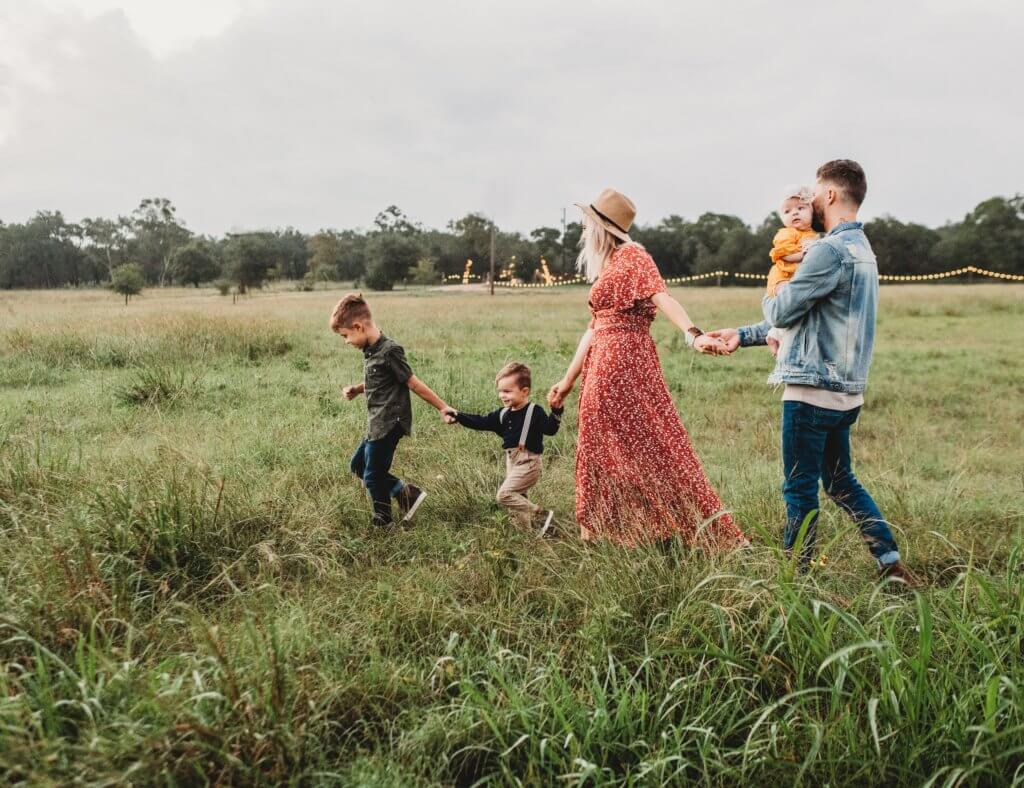HOUSTON — The grass (or pavement) is always greener. Plenty of people who live in cities dream of one day packing their bags and retiring to a much more natural setting filled with wide open spaces, but many residing in more rural regions often wonder about life in a big city. While both settings have their ups and downs, researchers from the University of Houston are encouraging more people to pack up and head toward more urban areas.
Their study finds that Americans who live in rural areas tend to be more anxious and depressed, less open-minded, and more neurotic. Additionally, people living “in the country” displayed lower levels of life satisfaction and less purpose, or meaning in life, than those living in urban areas.
Importantly, the project also highlights disparities in access to mental health services as a potential major factor driving these psychological differences.
Mental health resources are disappearing in the countryside
Since 2010, there has been a surge in rural hospital closures, contributing to a reduction in the health care provider workforce – including, of course, mental health professionals. Close to 85 percent of all rural counties are dealing with a mental health professional shortage, despite rural residents actually requesting more psychological services.
“It will be critical to improve access to psychological services in remote areas and to identify how characteristics and values of rural communities can be leveraged to promote positive psychological health,” says Olivia Atherton, assistant professor of psychology, in a university release.

To conduct this research, Prof. Atherton analyzed data collected by two large longitudinal studies of U.S. Americans: Midlife in the United States (MIDUS) and the Health and Retirement Study (HRS). She focused heavily on whether there were any rural-urban differences in levels and changes among both the “Big Five” personality traits (extraversion, agreeableness, openness, conscientiousness, neuroticism) and well-being (psychological well-being, life satisfaction) across all of adulthood.
This work also provides important new insights regarding the impact of living environment, indicating that where people live can indeed impact personality and well-being in adulthood, all while simultaneously raising more questions that future work should explore.
“Given the far-reaching consequences of rural health disparities for individuals, families and communities, there is a pressing need to identify the psychological, social and structural mechanisms responsible for disparities and the ways in which to intervene upon those mechanisms to improve the health of rural Americans,” Prof. Atherton concludes.
The study is published in the Journal of Personality.
You might also be interested in:
- Children raised in rural areas have better motor skills than urban children
- The simpler life? Pandemic pushing more city dwellers to move to the country
- Return to the city? Living in the country could be the worst thing for your heart
- Leaving the city for the suburbs during pregnancy might lead to smarter children
- Living near a busy road can raise risk of premature death by 20 percent
- Green and blue spaces together provide even bigger boost to mental health
- Living near a major road linked to a host of neurological disorders
- Living near green spaces linked to lower rate of smoking, better odds of quitting


HAHA…sure thing. Nice try
Biggest crock of county cow patties I have ever stepped in.
Good. Stay in the cities.
Amen to that!
I totally disagree with this article. I lived in the city my entire life. At 58, we purchased an acreage in the country, where “town” is 25 miles away. The pace of life is SO different and so are the people. Crime is next to nothing; traffic is thing of the past; people totally aren’t in any hurry; and rude people are far and few between.
The town that is close by has Walmart, Lowe’s, and other shops I frequented when we lived in the city, so regular amenities are more than sufficient. The only thing I do miss is having fast food within 5 minutes and I will admit that we still drive back to the city (2 hours) for our medical care. Other than that, I do not miss a THING about city life! I’m honestly kicking myself in the butt for not doing it sooner!
I have to agree. Our move away from the city scene was similar in result, except that we found excellent medical support in our new small town. We left urban life after the culture deteriorated during Covid, and we experienced dangerous streets thanks to the new inability to police the city effectively. During the year we left, there were six shootings in the neighborhood, and the house we sold had a newly repaired bullet hole in the wall outside one of the bedrooms. No more. Our mental health is so much better here.
We too, moved out just in time! Our old neighborhood was deteriorating drastically as well, but not to the point of shootings.However, the city is going to hell in a hand basket. You can’t turn on the news without non-stop crime reports. Was so over it…
When we travel back now to visit family and go to doctor appointments, I can’t get out of there quickly enough!
Former Seattleite?
This is so dumb.
Agreed! Its like they did a study, found the opposite true, then inverted it and published it. Trusting Clowns in Authority positions is no longer an Option for Thinking Americans. The rest of them can keep on boosting themselves into their next lifetime…
Yeah. Just throw everyone in “sustainable” cities. Ridiculous article.
“Researchers from the University of Houston.” LOL…
I bet you John is a city boy. Has no clue what he is wringing about….. Rural life Rules!
Nothing staves away depression quite like a crack smoking homeless man taking a sh*t and screaming in front of your $3400 a month studio apartment.
Well put.
Nailed it!
Lol this is comedy. Our family is so much better and happier after moving out Denver into the country 10 years ago. Oddly the family in the city seemd to age years while we have not
lived in the city until 38. moved to the country and once you go country you never go back. i go for visits of course, my parents still live in the city. but what a hell hole. when i get back and hit that first ranch, it is like you died and have gone to heaven. i still enjoy the city…but not living there.
This study come from the University of Houston, sometimes called Houston High School, that explains a lot.
Lived in cities: NYC, Philly, SF, LA, Honolulu, Hong Kong, Manila, & Singapore. As everyone has so far commented nothing, NOTHING, beats living in the country. From Kaycee, WY to Holy Dog Ranch N of Santa Fe. From AJ, AZ ]when it was rural] to where I is now. All these cites were pretty darn nice when I lived in them, except LA, but they are now much 3rd world toilet cities, except Singapore with its very strict and enforced rules. HK I like the best. I look at these kinds of studies as ploys to herd folks into controlled enviorments.
I grew up rural, live suburban and work urban / WFH 50/50.
Rural can mean a lot of things. If you’re 5 miles outside of a town with 25000 people in it and have an acre of land, that seems rural to someone in the burbs.
if you live in a county where the county seat has 900 people and it’s a county or two away just to get stuff like target, that’s what I think of as rural. I lived between the two.
I lived around people who were more satisfied than anyone I’ve met in the burbs when I lived rural, but there were others the other way around. A blanket statement here just doesn’t fit well. Add the dimension of kids or no kids. My kids have far more opportunities in the burbs and live a busier life (they like it). I liked where I grew up. If rural living fits you well and you don’t necessarily want to be a consensus/community type – I don’t see why it’s worse. Telehealth for psychological services is common. And probably better.
I think this “research” was solely based on who is seeking treatment for mental health, people in cities or people in the country. Assuming that those who do not seek these treatments are in need and not receiving treatment. In my opinion, most who are not seeking mental health treatment, do not need mental health treatment. Of course , the biggest reason that most who need mental health treatment is economical, not where you live. Homeless, not seeking mental health and living in cities. People with income, drive from the country to cities all the time for all kinds of things, shopping, cultural events, physical and mental health appointments. Wondering how much funding this stupid biased “researcher” got for this research that could have helped how many homeless in Houston who need mental health treatment?
Great! Now if everyone can stop building houses near me and move to the city I would appreciate it!
Lived in the burbs of Wash DC. Chicago etc. Now 10 acres rural real rural. Only a true id i ot would go back. 4 kids grew up hiking camping etc. Great safe schools. No violancr to speak of. And this author says go to a city?? No way
Yes, this article and the referenced study is 1000% factual. Please, please urbanites, city-folk, ghetto-dwellers and other respective sheeple, please stay in your city cesspools and leave our countryside and mountain towns alone. You’ll be happier crammed in your crackerjack houses and cardboard apartment buildings where every living moment is somehow infringed upon by the masses living around you and, most importantly, your precious government overlords can keep you placated and numb. Happiness is the city.
Who paid this author? Was it the WHO? I really miss the sound of random gun shots coming from cars speeding by weekly. Non-stop sirens day and night. I especially miss the traffic!!!!!!!!!!! lol I agree with the above commenter. When I visit the city now, I can’t get out quick enough!
I’m sure this study has nothing to do with the World Economic Forums push for “15 minute cities”. Nah, that’s just a conspiracy… right?